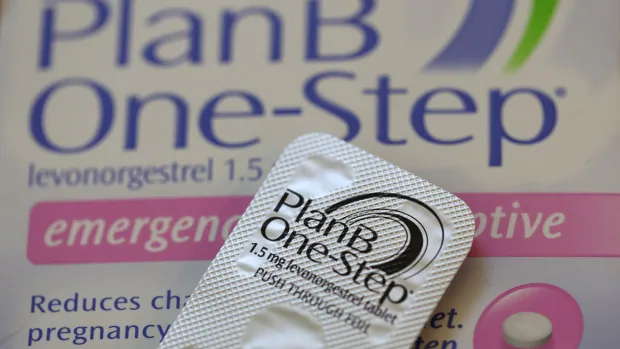Legal experts say a pharmacist in Saguenay, Que., who refused to prescribe the morning-after pill to a woman was within his rights, but he had an obligation to accommodate her through other means.
Radio-Canada reported Wednesday that a 24-year-old woman said a Jean Coutu pharmacist in the borough of Chicoutimi refused to sell her emergency oral contraception because doing so would not “align with his values.” Ultimately, she went to another pharmacy to get the pill.
The woman wished to remain anonymous for fear of reprisal.
Asked whether the pharmacist was justified in his actions, human rights lawyer Julius Grey says a person cannot be forced to act against their beliefs.
“A person’s conscience should be respected unless there is a completely compelling reason [for it not to be],” he said. “We consider all sorts of other things – equality, fairness, etc. – as more important than conscience. But conscience is a fundamental thing.”
According to Section 3 of the Quebec Charter of Human Rights and Freedoms, “Every person is the possessor of the fundamental freedoms, including freedom of conscience, freedom of religion, freedom of opinion, freedom of expression, freedom of peaceful assembly and freedom of association.”
Balancing rights
Grey says the importance of conscience shouldn’t be understated. But like most freedoms, there may be limits.
For instance, Grey says if this pharmacy were the only one in the region where the pill could be obtained, then the pharmacist may be obligated to prescribe it.
“You’re balancing the liberty and equality rights of one person with the liberty and equality rights of another,” Grey said. “But if there is another pharmacy next door or another pharmacist even working with him, he can say, ‘I don’t want to do this.'”
To explain that the pharmacist acted within his rights, Grey also pointed to Section 7 and Section 15 of the Canadian Charter of Rights and Freedoms, which discuss liberty interests and equality rights.
Pearl Eliadis, a human rights lawyer and associate professor at the Max Bell School of Public Policy, notes the woman was entitled to receive the morning-after pill when she requested it and in a manner that respected the timeline to ensure a safe medical procedure.
The emergency oral contraception pill should be taken 12 to 24 hours after intercourse for maximum effectiveness, according to Familiprix, a Canadian group of independent pharmacists.
She says the pharmacist had an obligation to exercise diligence and make…
Click Here to Read the Full Original Article at CBC | Top Stories News…

